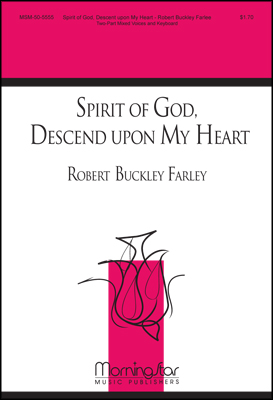Scripture References:
st. 1 = Ps. 51:10-12, Rom. 8:26, Eph. 3:16
st. 2 = Luke 11:13
st. 3 = Matt. 22:37
st. 4 = Ezek. 36:27
st. 5 = Rom. 5:5
This hymn is an intense, personal prayer for the working of the Holy Spirit (st. 1), for illumination (st. 2), for more fervent love for Christ (st. 3), for greater holiness in our walk with the Lord (st. 4), and for the fullness of the Spirit (st. 5). The first line was changed from "Spirit of God, descend upon my heart" to "Spirit of God, who dwells within my heart."
This text was ascribed posthumously to George Croly (b. Dublin, Ireland, 1780; d. Holborn, London, England, 1860) when it was published in Charles Rogers's Lyra Britannica (1867). Croly was educated at Trinity College, Dublin. After serving in Irish Anglican churches from 1804-1810, he moved to London and began a successful literary career as poet, novelist, conservative journalist, and editor of The Universal Review. In 1835 he returned to pastoral work and served a poor parish in London, where he became a very popular preacher. Croly published a number of his hymns in a collection he edited, Psalms and Hymns for Public Worship (1854).
Liturgical Use:
Pentecost; worship services at other times of the year because anytime is renewal time!
--Psalter Hymnal Handbook, 1988
==============
Spirit of God! descend upon my heart. G. Croly. [Holiness Desired.] From his Psalms & Hymns, 1854.
--John Julian, Dictionary of Hymnology, Appendix, Part II (1907)


 My Starred Hymns
My Starred Hymns









